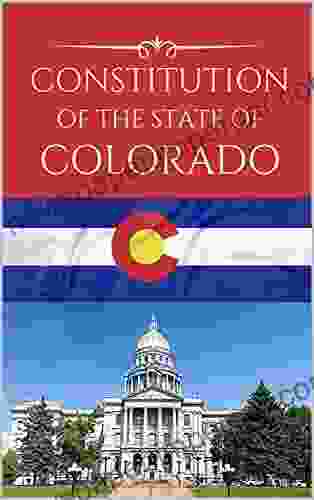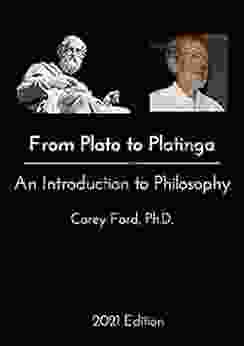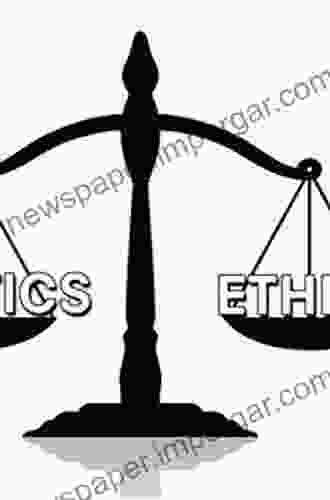Fiduciaries and Trust: A Comprehensive Guide to the Ethical, Political, Economic, and Legal Foundations of Trust

Trust is a fundamental concept that permeates every aspect of our lives, from personal relationships to international diplomacy. In the realm of business and finance, trust is essential for the smooth functioning of markets and the protection of investors. Fiduciaries, such as trustees, investment advisors, and corporate directors, play a critical role in maintaining trust by acting in the best interests of those who have placed their confidence in them.
This comprehensive guide to fiduciaries and trust delves into the ethical, political, economic, and legal foundations of trust. It examines the duties and responsibilities of fiduciaries, the potential conflicts of interest that can arise, and the consequences of breaches of trust. It also explores the role of trust in the economy and the importance of trust in building strong and stable societies.
5 out of 5
| Language | : | English |
| File size | : | 2078 KB |
| Text-to-Speech | : | Enabled |
| Screen Reader | : | Supported |
| Enhanced typesetting | : | Enabled |
| Word Wise | : | Enabled |
| Print length | : | 352 pages |
Section 1: The Ethical Foundations of Trust
Trust is a complex and multifaceted concept that has been the subject of philosophical and ethical inquiry for centuries. At its core, trust is based on the belief that another person or institution will act in your best interests, even when ng so may be difficult or costly for them.
There are a number of factors that contribute to trust, including:
* Character: People who are trustworthy are generally seen as honest, reliable, and competent. They have a strong sense of integrity and are willing to act in accordance with ethical principles. * Competence: People who are competent are seen as capable of carrying out the tasks that they are entrusted with. They have the knowledge, skills, and experience necessary to make sound decisions. * Benevolence: People who are benevolent are seen as caring and compassionate. They have a genuine concern for the welfare of others and are motivated to act in ways that will benefit them.
When all of these factors are present, it creates a strong foundation for trust. However, even the most trustworthy people can make mistakes or be influenced by self-interest. It is therefore important to have systems in place to protect against breaches of trust.
Section 2: The Political Foundations of Trust
Trust is a critical component of any functioning society. It allows us to work together to achieve common goals and build a better future for ourselves and our children. However, trust can be easily eroded by political corruption, cronyism, and other forms of misconduct.
There are a number of things that governments can do to promote trust, including:
* Enacting laws and regulations that protect citizens from fraud and abuse.* Creating independent institutions to oversee government agencies and ensure that they are acting in the public interest.* Promoting transparency and accountability in government.
When citizens trust their government, they are more likely to be engaged in the political process and to work together to solve problems. Trust also makes it more difficult for corrupt politicians to stay in power.
Section 3: The Economic Foundations of Trust
Trust is essential for economic growth and prosperity. It allows businesses to invest in new products and services, knowing that they will be able to recoup their investment. It also allows consumers to make informed decisions about what to buy, knowing that they can trust the products and services that they are purchasing.
There are a number of things that businesses can do to promote trust, including:
* Being transparent about their business practices.* Providing excellent customer service.* Honoring their commitments.
When businesses build trust with their customers, they are more likely to generate repeat business and positive word-of-mouth. Trust also makes it easier for businesses to attract and retain top talent.
Section 4: The Legal Foundations of Trust
The law plays a critical role in protecting trust. The law defines the duties and responsibilities of fiduciaries, and it provides remedies for breaches of trust. The law also creates a framework for the resolution of disputes between fiduciaries and their beneficiaries.
There are a number of important legal principles that apply to fiduciaries, including:
* The duty of loyalty: Fiduciaries must act in the best interests of their beneficiaries. They must not put their own interests ahead of the interests of their beneficiaries. * The duty of care: Fiduciaries must exercise reasonable care in carrying out their duties. They must make informed decisions and take all reasonable steps to protect the interests of their beneficiaries. * The duty of disclosure: Fiduciaries must disclose all material information to their beneficiaries. They must not withhold any information that could affect the beneficiaries' decisions.
The law provides a number of remedies for breaches of trust, including:
* Removal from office: Fiduciaries who breach their duties may be removed from their office. * Damages: Fiduciaries who breach their duties may be liable for damages to their beneficiaries. * Rescission: Fiduciaries who breach their duties may be required to rescind their actions.
The law is an essential tool for protecting trust. It provides a framework for the resolution of disputes and ensures that fiduciaries are held accountable for their actions.
Trust is a fundamental concept that is essential for the smooth functioning of societies, markets, and personal relationships. Fiduciaries play a critical role in maintaining trust by acting in the best interests of those who have placed their confidence in them. The ethical, political, economic, and legal foundations of trust are all important for ensuring that fiduciaries fulfill their duties and responsibilities.
By understanding the foundations of trust, we can all play a role in building a more trusting and prosperous world.
5 out of 5
| Language | : | English |
| File size | : | 2078 KB |
| Text-to-Speech | : | Enabled |
| Screen Reader | : | Supported |
| Enhanced typesetting | : | Enabled |
| Word Wise | : | Enabled |
| Print length | : | 352 pages |
Do you want to contribute by writing guest posts on this blog?
Please contact us and send us a resume of previous articles that you have written.
 Book
Book Novel
Novel Page
Page Chapter
Chapter Text
Text Story
Story Genre
Genre Reader
Reader Library
Library Paperback
Paperback E-book
E-book Magazine
Magazine Newspaper
Newspaper Paragraph
Paragraph Sentence
Sentence Bookmark
Bookmark Shelf
Shelf Glossary
Glossary Bibliography
Bibliography Foreword
Foreword Preface
Preface Synopsis
Synopsis Annotation
Annotation Footnote
Footnote Manuscript
Manuscript Scroll
Scroll Codex
Codex Tome
Tome Bestseller
Bestseller Classics
Classics Library card
Library card Narrative
Narrative Biography
Biography Autobiography
Autobiography Memoir
Memoir Reference
Reference Encyclopedia
Encyclopedia Jonathan Higgins
Jonathan Higgins Joseph J Romm
Joseph J Romm John W Dower
John W Dower John Hargrove
John Hargrove John Keats
John Keats John Shaw
John Shaw John M Curatola
John M Curatola John M Steele
John M Steele John Nero
John Nero John Toland
John Toland Jonathan S Mcmurray
Jonathan S Mcmurray Jonathan Silver
Jonathan Silver Johnny Molloy
Johnny Molloy John Kampfner
John Kampfner Joseph G Mccoy
Joseph G Mccoy Joseph Bastianich
Joseph Bastianich John Clanchy
John Clanchy John Ed Pearce
John Ed Pearce Jon Peters
Jon Peters John Truman Wolfe
John Truman Wolfe
Light bulbAdvertise smarter! Our strategic ad space ensures maximum exposure. Reserve your spot today!

 Jesse BellDiary of an Unlikely Call Girl: A Gripping Tale of Love, Redemption, and the...
Jesse BellDiary of an Unlikely Call Girl: A Gripping Tale of Love, Redemption, and the... Duncan CoxFollow ·13.8k
Duncan CoxFollow ·13.8k Ike BellFollow ·19.5k
Ike BellFollow ·19.5k Dashawn HayesFollow ·9.9k
Dashawn HayesFollow ·9.9k Julian PowellFollow ·8.2k
Julian PowellFollow ·8.2k Lord ByronFollow ·10.1k
Lord ByronFollow ·10.1k Ezekiel CoxFollow ·19.3k
Ezekiel CoxFollow ·19.3k Geoffrey BlairFollow ·9.9k
Geoffrey BlairFollow ·9.9k George MartinFollow ·10.2k
George MartinFollow ·10.2k

 Jake Powell
Jake PowellThe Constitution of the State of Colorado: A Legacy of...
Since its adoption in 1876, the...

 Devin Ross
Devin RossFrom Plato to Plantinga: A Journey Through the History of...
Philosophy is the study of...

 Robin Powell
Robin PowellWords That Hurt, Words That Heal: The Power of Language...
Words are powerful. They can...

 T.S. Eliot
T.S. EliotTantalize Your Taste Buds with Over 90 Low-Carb Ethnic...
Indulge in a Culinary Adventure with "Over...
5 out of 5
| Language | : | English |
| File size | : | 2078 KB |
| Text-to-Speech | : | Enabled |
| Screen Reader | : | Supported |
| Enhanced typesetting | : | Enabled |
| Word Wise | : | Enabled |
| Print length | : | 352 pages |














